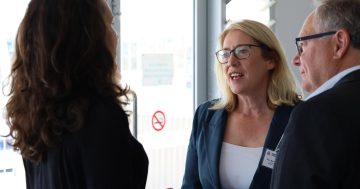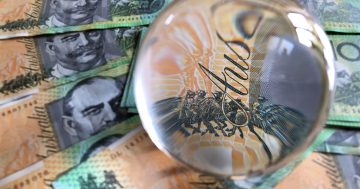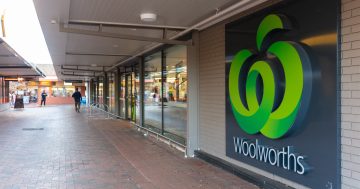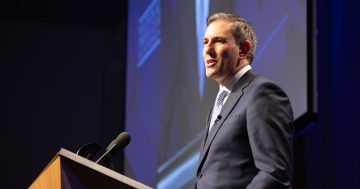David Taylor* says people in the know are warning that double-digit interest returns for investors are over — possibly for good.
 For years, customers have been paying for bank decisions designed to reward shareholders.
For years, customers have been paying for bank decisions designed to reward shareholders.
Think fees and higher interest rates.
Now, thanks to Coronavirus, analysts say just about every bank stakeholder is worse off.
It all relates back to the banks’ basic business model — lending money out at higher rates than what’s paid to depositors.
It’s been challenged like never before by record low interest rates.
An average credit card rate of 16 per cent is helping drive profits to a degree, but the mega pre-COVID profits aren’t likely to return for years, if ever.
In an unusually frank admission, Chief Executive of NAB, Ross McEwan (pictured) said the days of investors enjoying an impressive 15 per cent return every year were over.
His exact phrasing was around the fact the bank wouldn’t produce an ROE (Return on Equity), which is a proxy investors use to work out what rate of return they might receive if they bought shares in the NAB — of 15 per cent again.
Put another way, if you buy NAB shares, you’ll be lucky to receive double-digit investment returns for the foreseeable future.
The NAB has its own problems — a heavier reliance on business banking and a disastrous push into the United Kingdom — but it’s also dealing with some broader challenges.
That is, there’s only so much more the big four banks can cut deposit rates and the Coronavirus economic crisis remains a constant threat to the quality of their assets (houses).
Banks can no longer generate the sorts of profits to which their shareholders have become accustomed.
This wouldn’t be an issue, except for the fact that the big four banks’ profitability, which they’ve repeatedly used to justify raising interest rates in the past, affects every working Australian with superannuation.
Here’s a scary thought: When we report big stock market movements up and down, there’s a strong chance it’s because the banks’ share prices, in unison, have moved up or down by a few percentage points.
Banking analyst, Martin North says roughly 40 per cent of the ASX’s returns are from the finance sector and roughly half of superannuation funds are exposed to Australian equities (shares).
“A significant fall in returns in the banking sector overall means super funds are going to receive a significant dent in their returns,” Mr North says.
“We really have been relying on the finance sector to prop up the superannuation system. So this has a very significant knock-on effect beyond the bank itself.”
Shane Oliver, who heads up investment strategy for AMP Capital, agrees that superannuation returns will be lower now for the foreseeable future.
He’s just not as pessimistic as Mr North.
“The typical superannuation fund might have, say, a seven per cent exposure to Australian banks and that can translate to a lower return from superannuation funds,” Dr Oliver says.
Share markets around the world have shown remarkable resilience in recent months, including in Australia.
There’s much scepticism that it’s only a matter of time before shares come crashing down again but, for now, they’re well above their March lows.
The problem though is that even when stocks do return close to pre-COVID-19, they’re not expected to grow at double-digit growth rates.
Property, bonds and term deposits are all in the same boat.
Dr Oliver says, simply, that investors all around the world need to get used to the idea of low investment returns, indefinitely.
“The reality is that we have come into a much lower return world for investments generally.
“Obviously we’re in recession at the moment but the recovery will be relatively restrained,” he says.
Bank investors are having a rough ride.
There remain on-going bad debt charges, which could soar if we don’t learn how to abseil down the September ‘economic cliff’.
We’re also staring at ultra-low interest rates, and dividends have been slashed.
It could, as always, be far worse.
At the heart of Mr McEwan’s admission is an attempt to re-adjust expectations.
A bank can deliver a huge profit, but if it falls short of expectations, the stock price will dive.
Humans enjoy being pleasantly surprised. The flipside is that we find bitter disappoints especially painful.
Mr McEwan saw low returns as far as the eye could see, but admitting it, publicly, speaks to how long the legacy of Coronavirus will last.
It’s now time to acknowledge that, in some cases, the economic changes will be permanent.
Better to know that now.
*David Taylor is a business reporter for the ABC’s Audio Current Affairs programs. He tweets @DaveTaylorNews
This article first appeared on the ABC News website.











